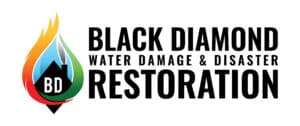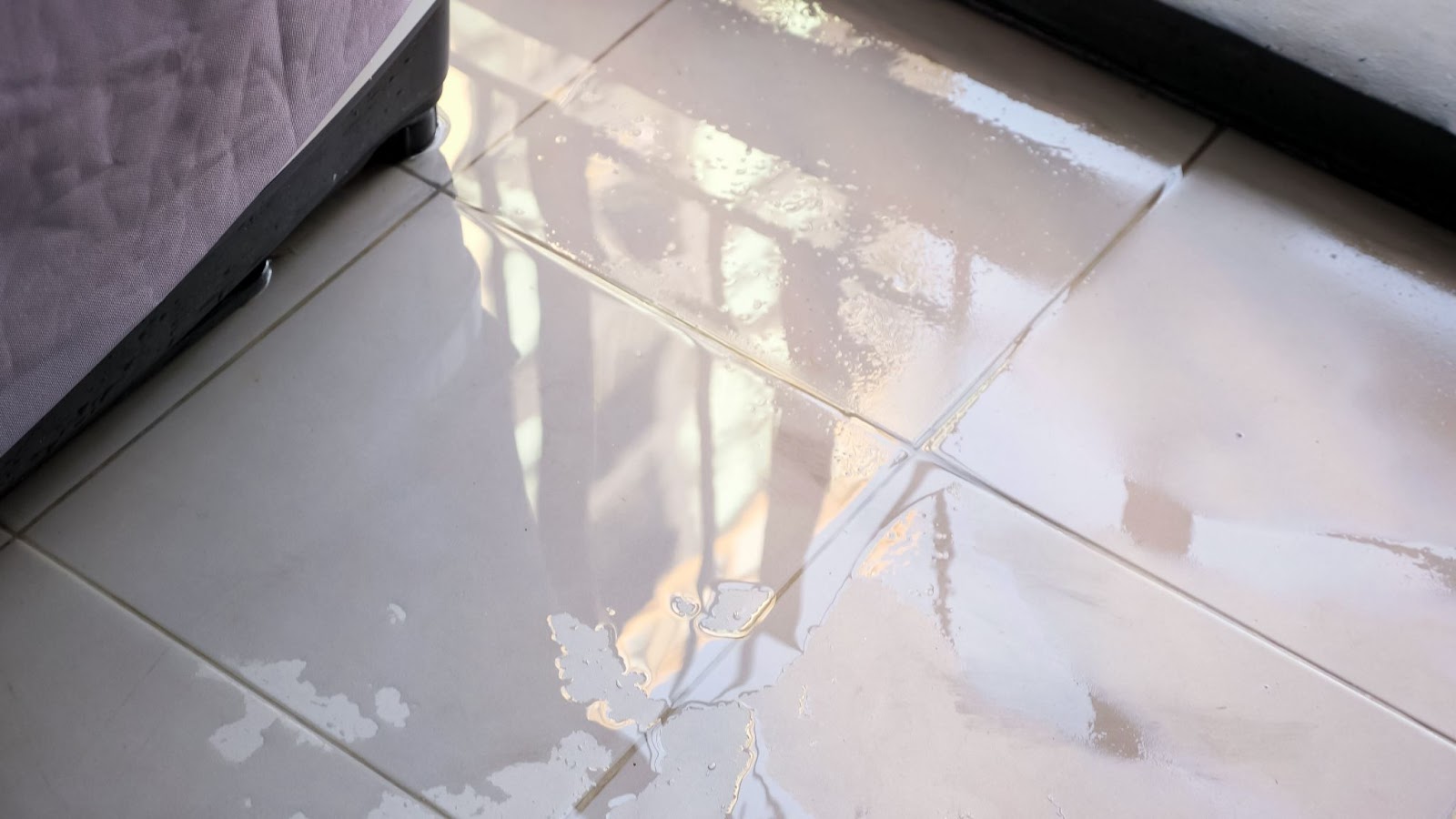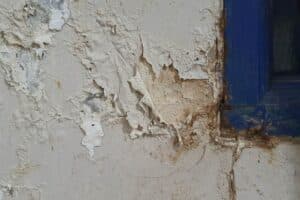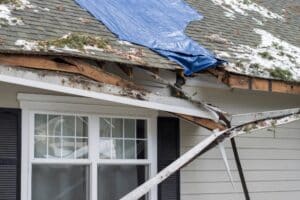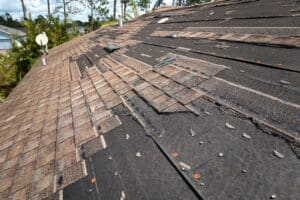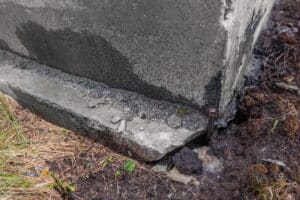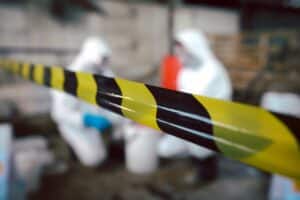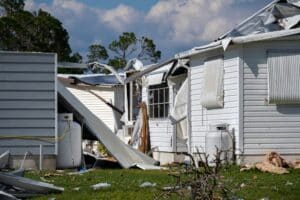Water damage is more than just a structural problem; it poses serious health risks that you should know about.
Water infestations create the perfect breeding ground for mold, bacteria, and other harmful microorganisms to thrive. But can water damage actually make you sick? The answer is yes, and the consequences are far-reaching. It’s best to be educated and prepared to prevent illness caused by dirty water.
Water damage and its causes
Water damage happens when water intrudes into areas where it shouldn’t be. This might happen for a variety of reasons, including:
Water damage occurs when water infiltrates areas it isn’t supposed to reach, potentially destroying property and belongings. This intrusion happens for several reasons. Flooding, often caused by heavy rains, hurricanes, or flash floods, is one of the most common culprits, leading to widespread water damage.
Plumbing problems such as leaking pipes, malfunctioning appliances, or overflowing toilets can also accumulate water in areas where it doesn’t belong.
Roof leaks, often due to damage or poor maintenance, allow water to seep into the structure, further contributing to damage. Finally, condensation from poor ventilation and high humidity levels builds up in places like basements, attics, and crawl spaces, gradually causing water-related issues.
The health risks of water damage
Water damage creates the perfect environment for many health hazards. Standing water that’s left alone or is not properly dried out leads to the growth of mold, bacteria, and other microorganisms that cause serious illness. Here’s how water damage impacts health:
- Mold growth
Mold is the most well-known health risk associated with water damage. Mold spores exist everywhere, and they only need a bit of moisture to start growing. Once mold takes hold, it spreads quickly and releases dangerous spores into the air.
Mold causes an array of issues, including:
- Respiratory issues – Breathing in mold spores can irritate the respiratory system, leading to symptoms like coughing, wheezing, and shortness of breath. For people with asthma or allergies, mold exposure can trigger severe attacks.
- Allergic reactions – Some individuals are particularly sensitive to mold and may experience symptoms like sneezing, runny nose, red eyes, and skin rashes.
- Toxic mold – Certain types of mold, like black mold, produce mycotoxins, which have serious health effects like neurological issues and immune system suppression.
- Bacterial contamination
Water damage, especially from sewage backups or floodwaters, can introduce harmful bacteria into your home. Bacteria can contaminate surfaces, water supplies, and the air, leading to a range of illnesses like:
- Gastrointestinal problems – Exposure to bacteria like E. coli and Salmonella leads to stomach cramps, diarrhea, vomiting, and other gastrointestinal problems.
- Skin infections – Encountering contaminated water may result in skin infections, especially if you have any cuts or open wounds.
- Respiratory infections – Breathing in bacteria-laden air can lead to respiratory infections, including pneumonia.
- Allergens and dust mites
A water damage emergency generates conditions that appeal to dust mites and other allergens. Dust mites thrive in warm, humid environments, which are often formed when water damage occurs.
- Allergic reactions – Dust mites are a common trigger for allergies. Symptoms like sneezing, runny nose, and itchy eyes are common.
- Asthma – Dust mites can trigger severe attacks in people with asthma. This may lead to difficulty breathing and other serious complications.
Preventing and addressing water damage
Given the alarming health risks associated with water damage, you must take steps to prevent it and address it right away if it occurs. Here’s how you can safeguard your home and health from illness caused by dirty water:
Regular maintenance
Regularly inspect your home for signs of leaks, especially in areas prone to water damage, like basements, attics, under sinks, and crawl spaces. Also, regularly check on your roof’s condition.
Repair any leaks or broken shingles immediately and keep gutters and downspouts free of debris.
Proper ventilation
In areas prone to moisture, like bathrooms and kitchens, use exhaust fans to reduce humidity levels when necessary. In humid climates or during the summer months, a dehumidifier will keep indoor humidity levels below 60%. And finally, open windows whenever possible to allow fresh air to circulate freely around your home. These tips will help reduce moisture buildup around your home.
Immediate response to water damage
If a water damage emergency occurs, act quickly to dry out the affected areas as thoroughly as possible. Use fans, dehumidifiers, and open windows to speed up the drying process. As you wade through the destruction, remove and properly dispose of any materials that have been soaked, such as carpeting, drywall, and insulation, to prevent mold growth.
Another important step is to clean and disinfect all surfaces that have come into contact with the water. This will kill any bacteria or mold spores that try to breed.
Professional water damage restoration
If the level of damage is extensive, hire a professional water damage restoration company to mitigate the damages. These experts have the tools and knowledge to thoroughly dry out your home, remove mold, and prevent further issues down the line.
Consider scheduling regular inspections with a professional to identify potential issues before they become serious problems. Staying on top of this maintenance will prevent costly and dangerous problems in the long run.
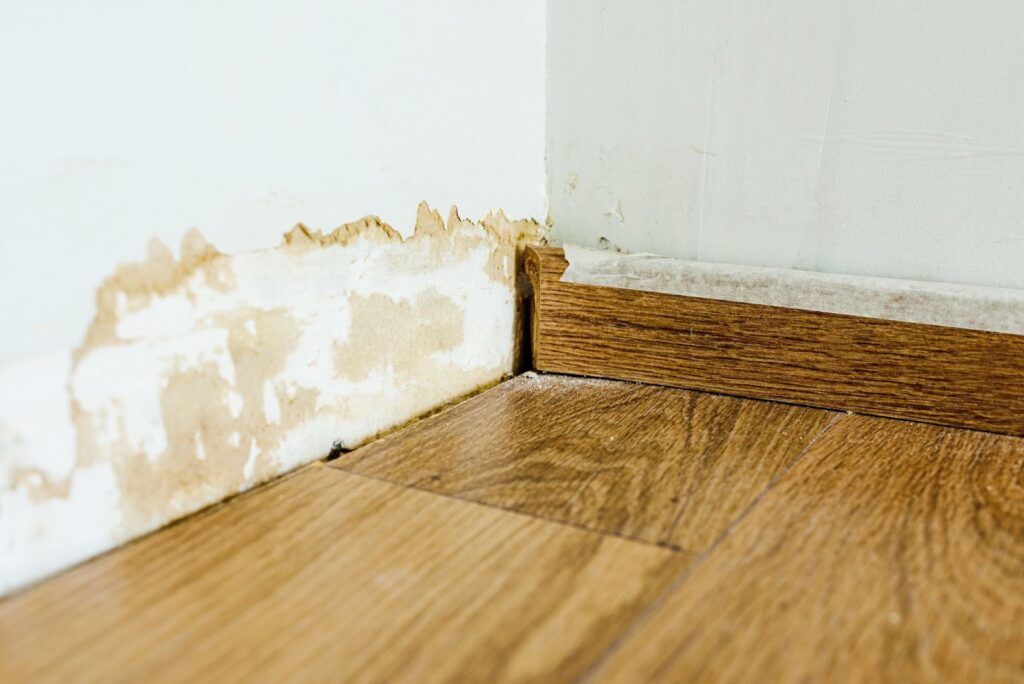
When to seek medical attention
After experiencing water damage, if you or a family member feels unwell, seek medical attention immediately. Symptoms such as ongoing coughing, trouble breathing, skin rashes, or gastrointestinal problems may indicate exposure to harmful contaminants like mold or bacteria.
If anyone develops an unexplained illness following water damage, contact a healthcare provider. People with asthma should be extra cautious, as mold and dust mites can trigger severe asthma attacks. Any allergic reactions, including hives, swelling, or difficulty breathing, should be treated as a medical emergency and require immediate care.
Black Diamond Restoration is your go-to for water damage cleanup
Water damage is more than just an inconvenience — it’s an impending health hazard that requires immediate attention. The experts at Black Diamond Restoration have extensive experience cleaning up and removing water damage from an array of properties. They’ll restore your home and help you avoid risky health hazards along the way.If you suspect water damage in your home, consult the pros at Black Diamond Restoration today! Your health and well-being are worth the investment.
toto slot toto slot toto togel